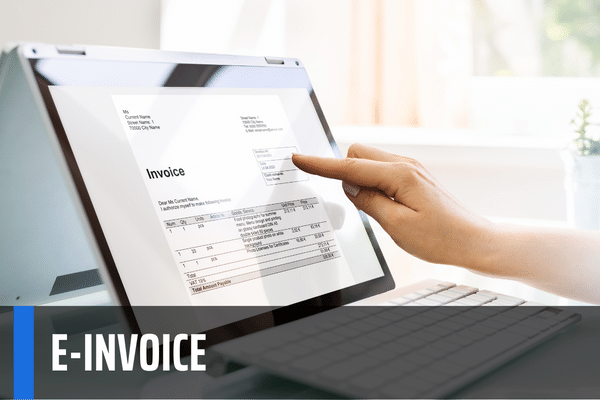What is the format of an e-invoice in Vietnam? Is it mandatory to convert e-invoices into paper invoices?
Vietnam: Is it necessary for an e-invoice to have the buyer’s electronic signature?
According to the provisions of Clause 14, Article 10 of Decree 123/2020/ND-CP, the following cases of e-invoices do not necessarily have all the following contents:
Contents of invoices
...
14. Exceptions:
a) An electronic invoice does not necessarily have the buyer’s electronic signature, even if goods/services are sold overseas. In case the buyer is a business establishment and both the buyer and the seller agrees to use digital or electronic signatures on the e-invoice issued by the seller, the invoice shall bear the buyer’s and the seller’s digital or electronic signatures as agreed.
b) E-invoices separately issued by tax authorities do not necessarily bear the buyer’s and the seller’s digital signatures.
c) The e-invoice issued by a supermarket or shopping mall to a non-business buyer does not necessarily bear the buyer’s name, address and TIN.
Thus, an electronic invoice does not necessarily have the buyer’s electronic signature.
In case the buyer is a business establishment and both the buyer and the seller agree to use digital or electronic signatures on the e-invoice issued by the seller, the invoice shall bear the buyer’s and the seller’s digital or electronic signatures as agreed.

What is the format of an e-invoice in Vietnam? Is it mandatory to convert e-invoices into paper invoices?
What is the format of an e-invoice in Vietnam?
According to the provisions of Article 12 of Decree 123/2020/ND-CP on the format of e-invoices as follows:
E-invoice format
1. The e-invoice format is the technical standard for the type of data, length of data of information fields serving transmission, storage and display of e-invoices. E-invoices shall be XML (extensible Markup Language) documents, which are meant to share electronic data between IT systems.
2. The data of an electronic invoice consists of two components: information about the transaction and the digital signature. Authenticated e-invoices shall also contain the data of the tax authority’s code.
3. The General Department of Taxation shall develop and announce the format of transaction-related information, digital signatures and tools for display of e-invoices prescribed herein.
4. The following requirements must be met when sellers directly transmit data to tax authorities:
a) Connect to the General Department of Taxation via a separate channel or MPLS VPN Layer 3, including 1 main channel and 1 backup channel. Each channel has a minimum bandwidth of 5 Mbps.
b) Use an encrypted Web Service or Message Queue (MQ) for connection.
c) Use Simple Object Access Protocol (SOAP) to compile, transmit and receive data.
5. Contents of e-invoices shall be fully and accurately displayed, ensure readers can read them with electronic devices.
Thus, organizations and individuals must ensure the implementation of e- invoice format according to the above regulations.
Vietnam: Is it mandatory to convert e-invoices into paper invoices?
Pursuant to Clause 2, Article 6 of Decree 123/2020/ND-CP stipulating the preservation and storage of invoices and documents as follows:
Storage and retention of invoices and records
...
2. E-invoices/electronic records shall be stored and retained by electronic instruments. Authorities, organizations and individuals are entitled to select and apply methods for storage and retention of e-invoices/electronic records in conformity with their specific operations and capacity to apply information technology. They must be printed out or search upon request.
Pursuant to Article 7 of Decree 123/2020/ND-CP stipulating the conversion of e-invoices and electronic documents into paper invoices and documents as follows:
Conversion of e-invoices/electronic records into paper invoices/records
1. Legal e-invoices/electronic records may be converted into paper invoices/records to meet the requirements of economic/financial transactions or at the request of tax authorities, audit, inspection or investigation authorities, and in accordance with regulations of laws on inspection and investigation.
2. Contents of a paper invoice or record which is converted from an e-invoice or electronic record must correspond to those of the original e-invoice or electronic record.
3. In case where an e-invoice or electronic record is converted into a paper invoice or record, this paper invoice or record shall be retained for bookkeeping and monitoring purposes only in accordance with regulations of the Laws on accounting and electronic transactions, and shall not be valid for use in transactions or payments, except for cases where invoices are generated from POS cash registers that are digitally connected to tax authorities in accordance with the provisions herein.
Thus, according to the above regulations, e-invoices are not required to be printed on paper, but only stipulate that legal e-invoices/electronic records should be available to be converted into paper invoices/records to meet the requirements of economic/financial transactions or at the request of tax authorities, audit, inspection or investigation authorities, and in accordance with regulations of laws on inspection and investigation.
LawNet
